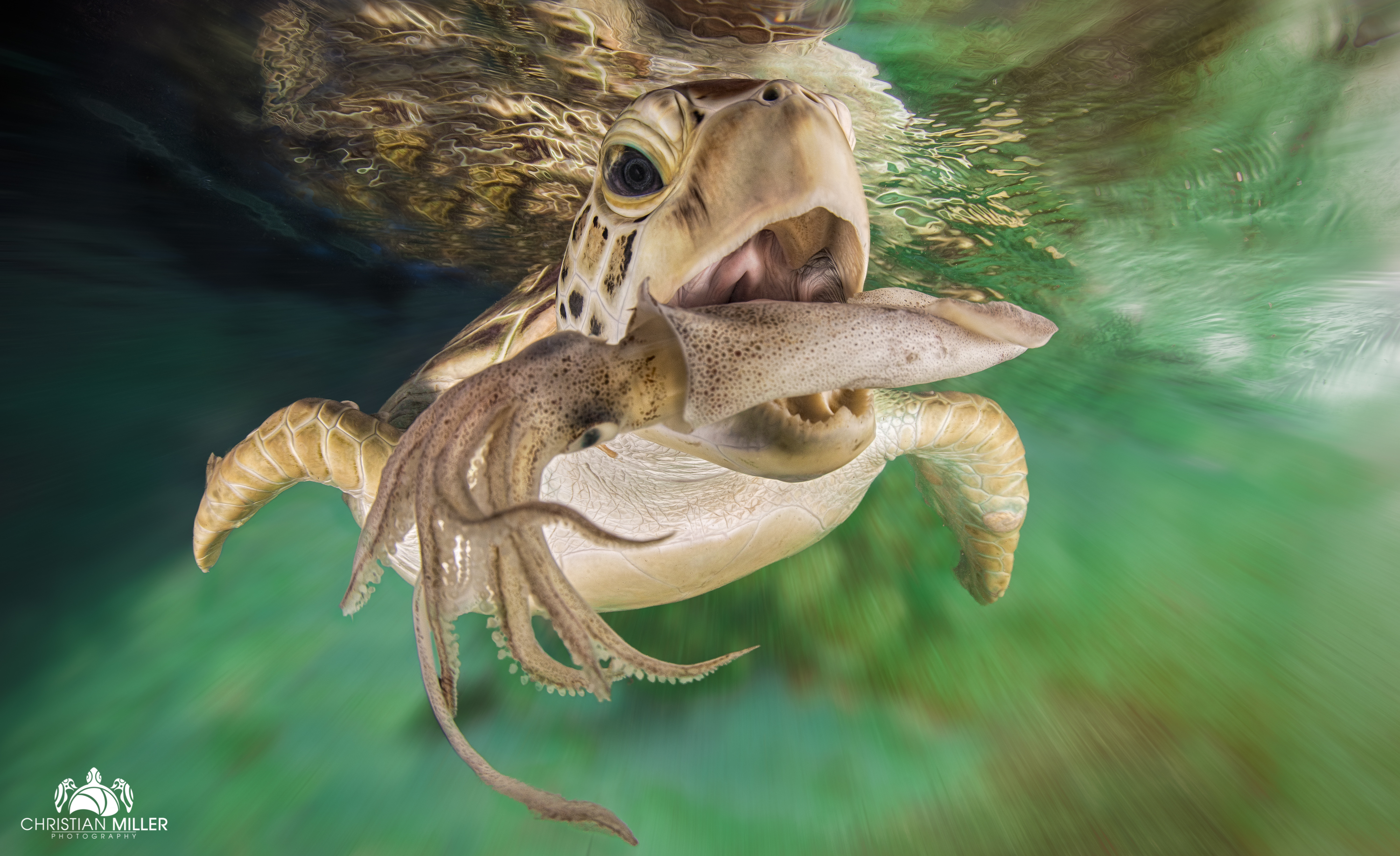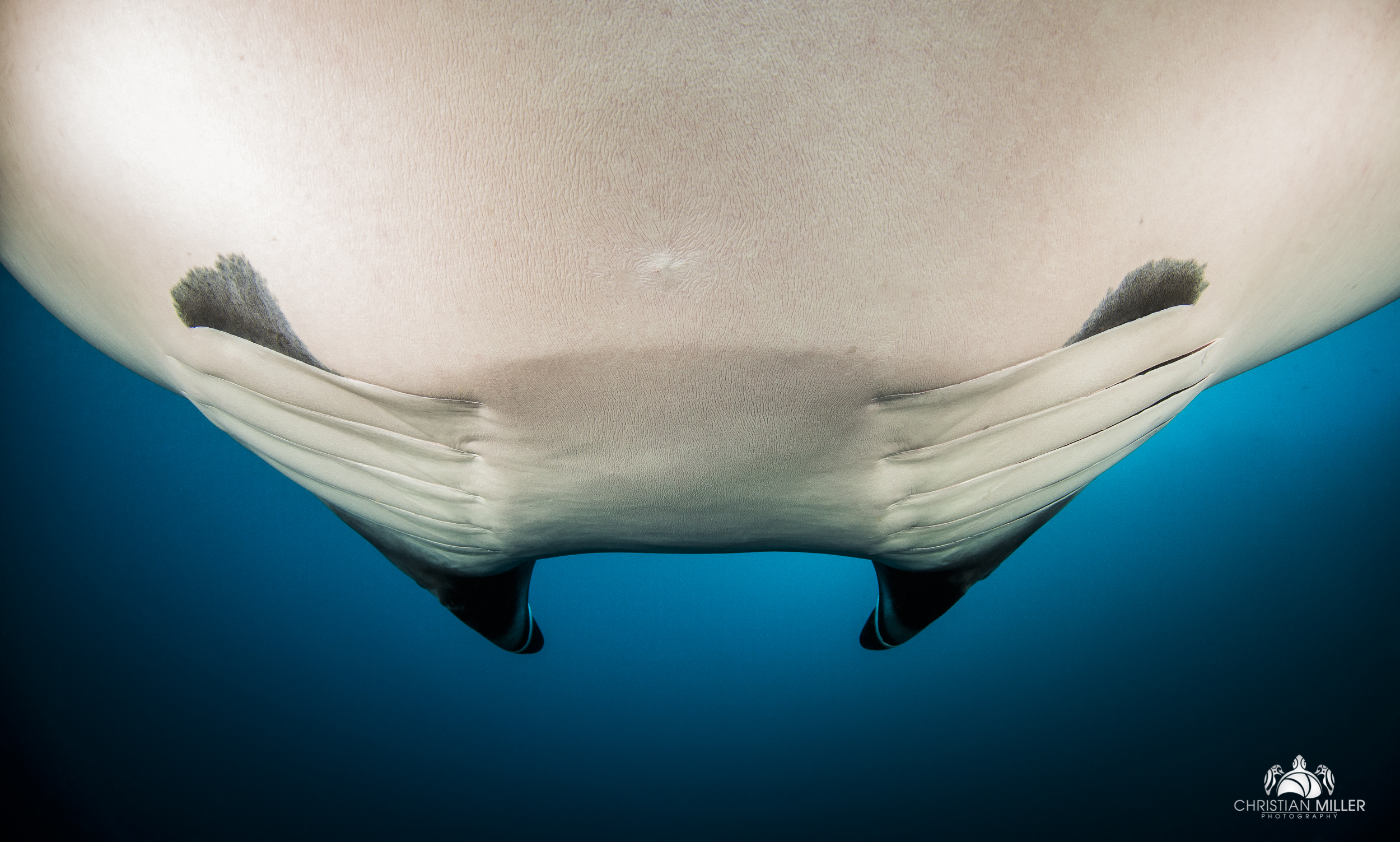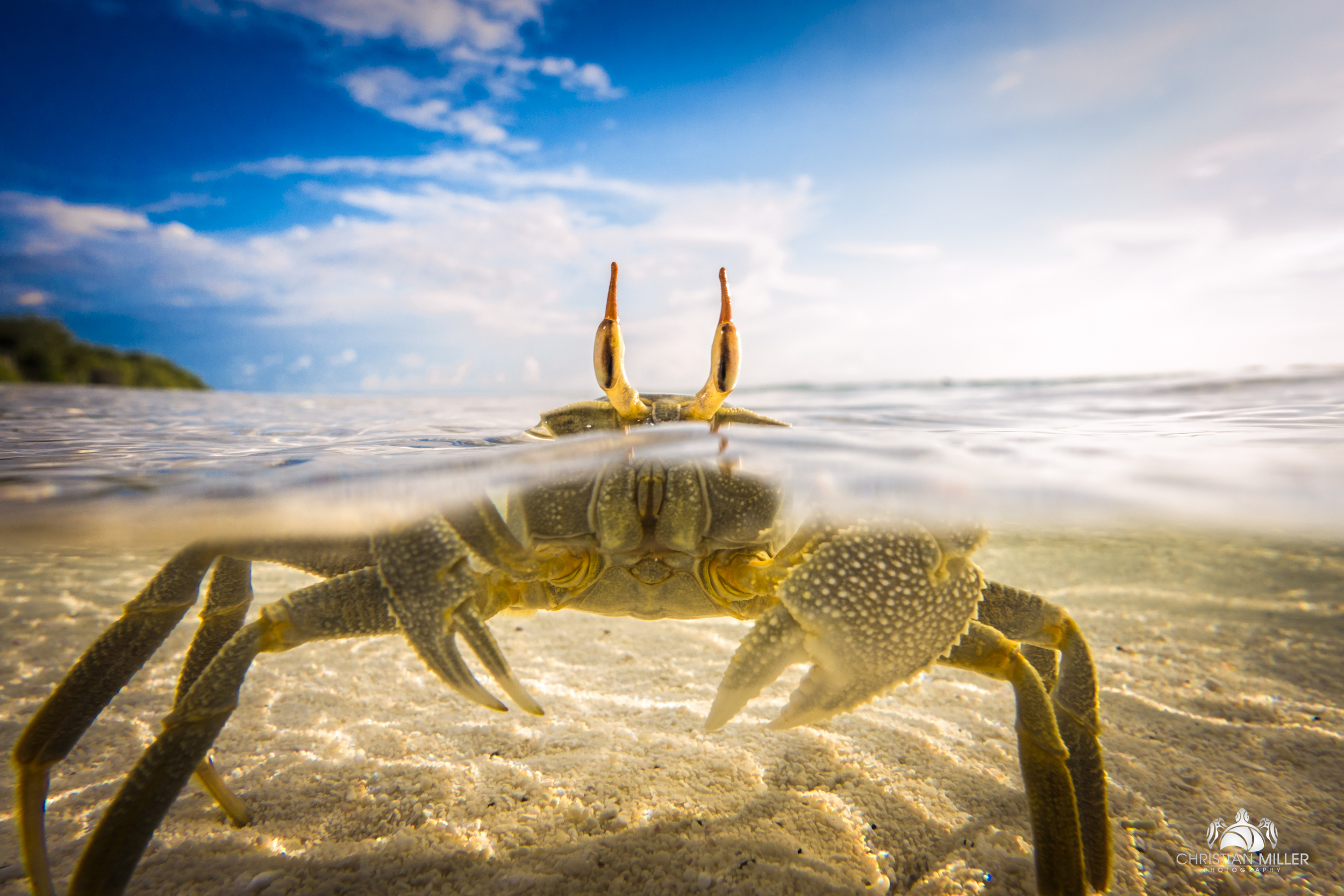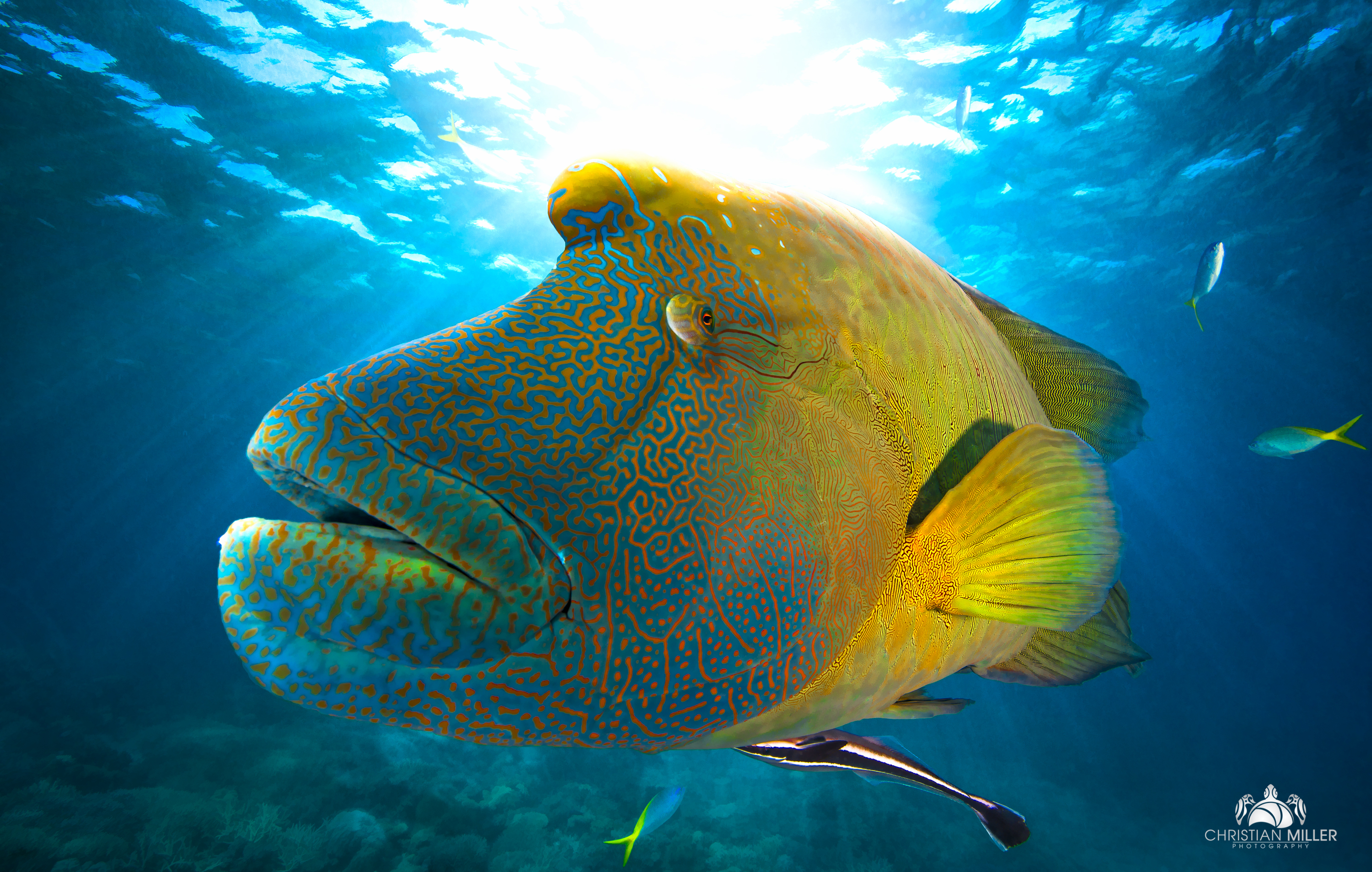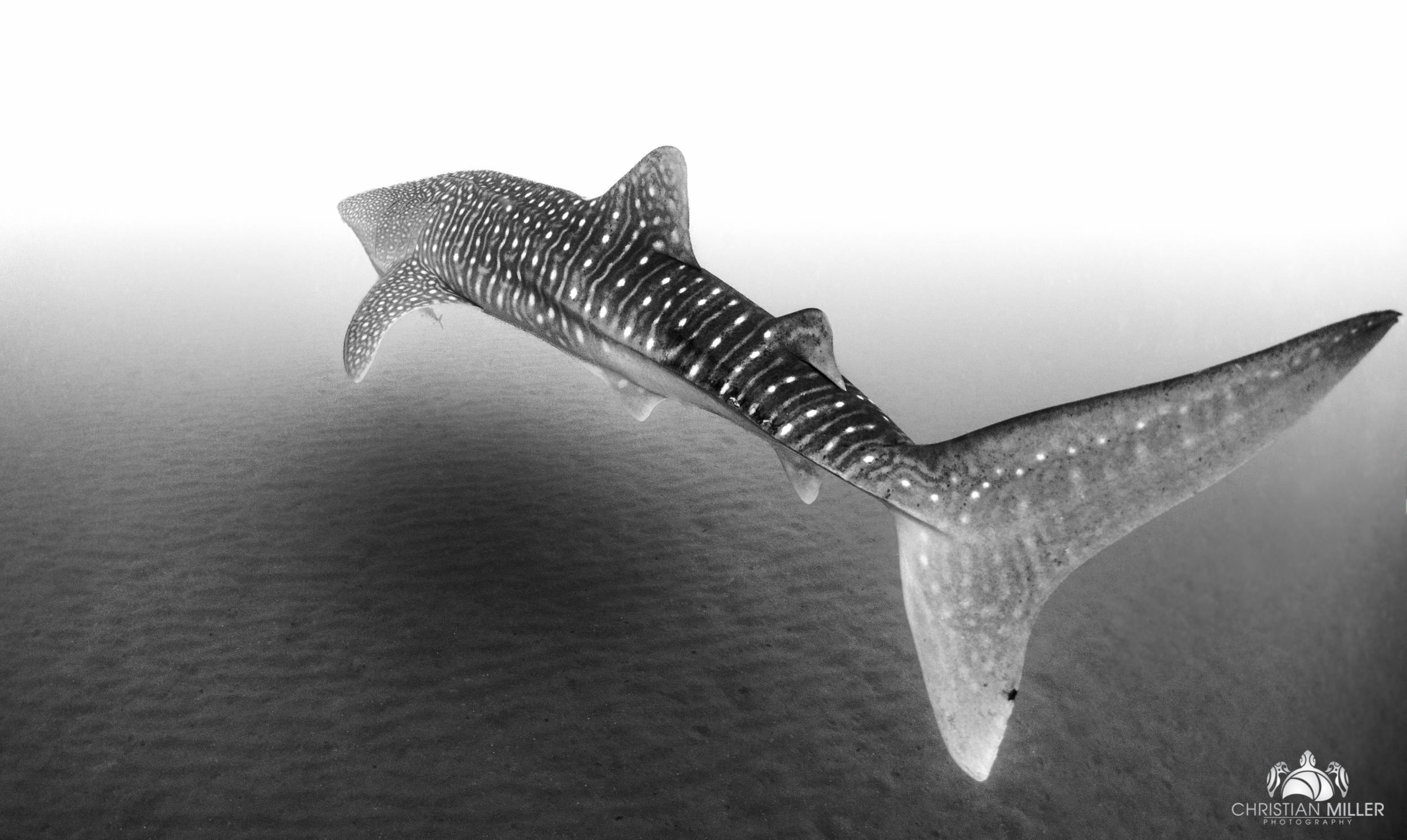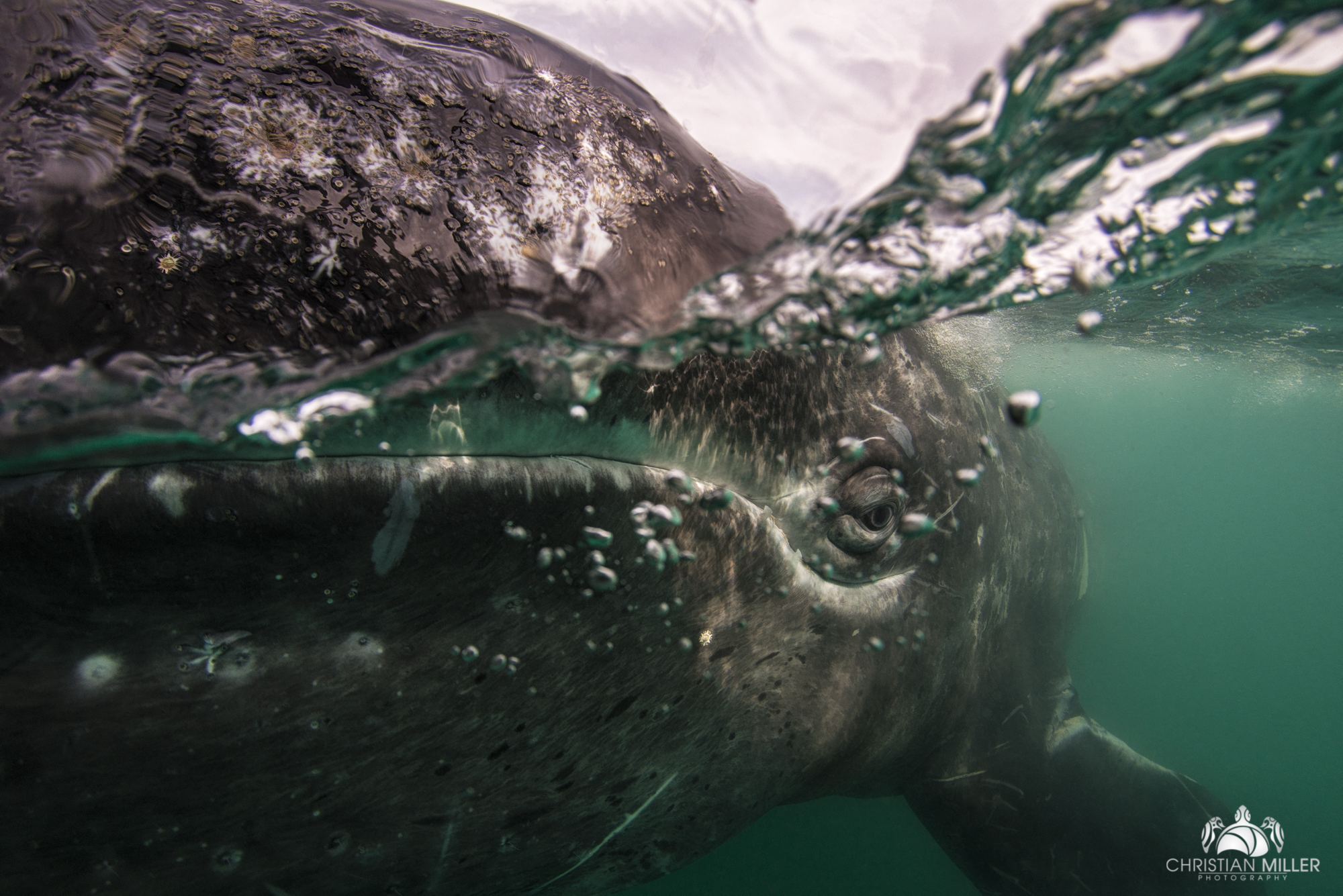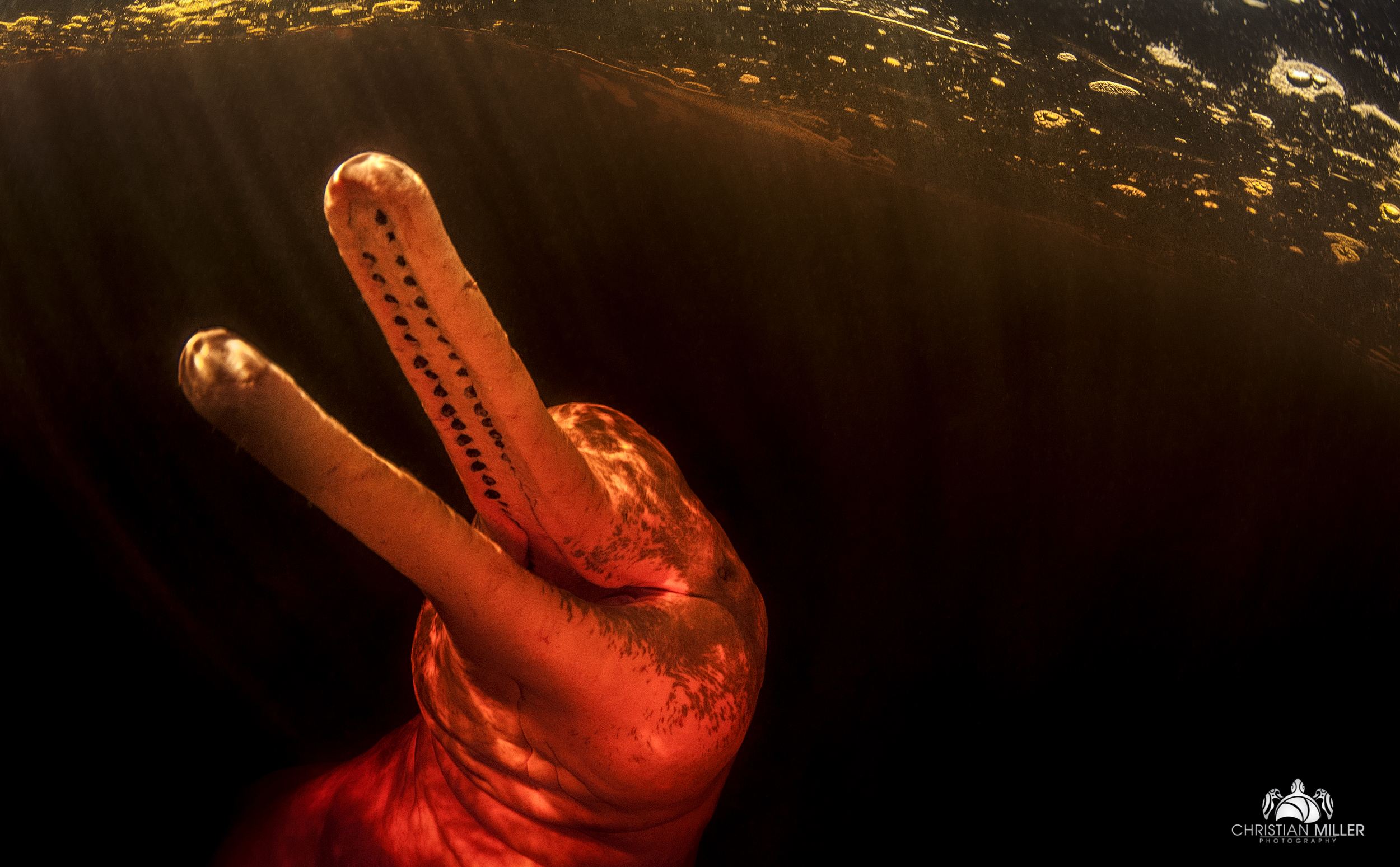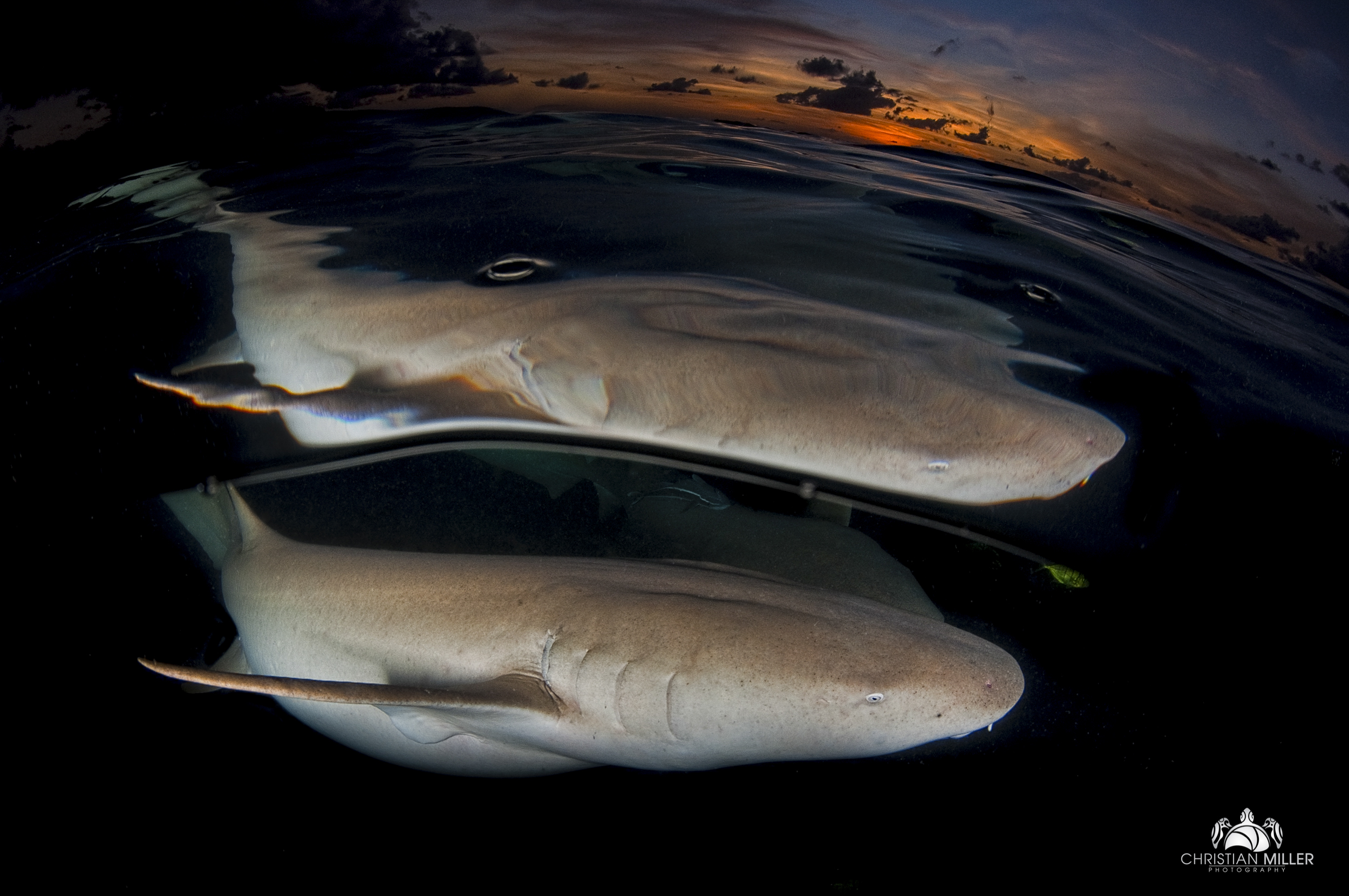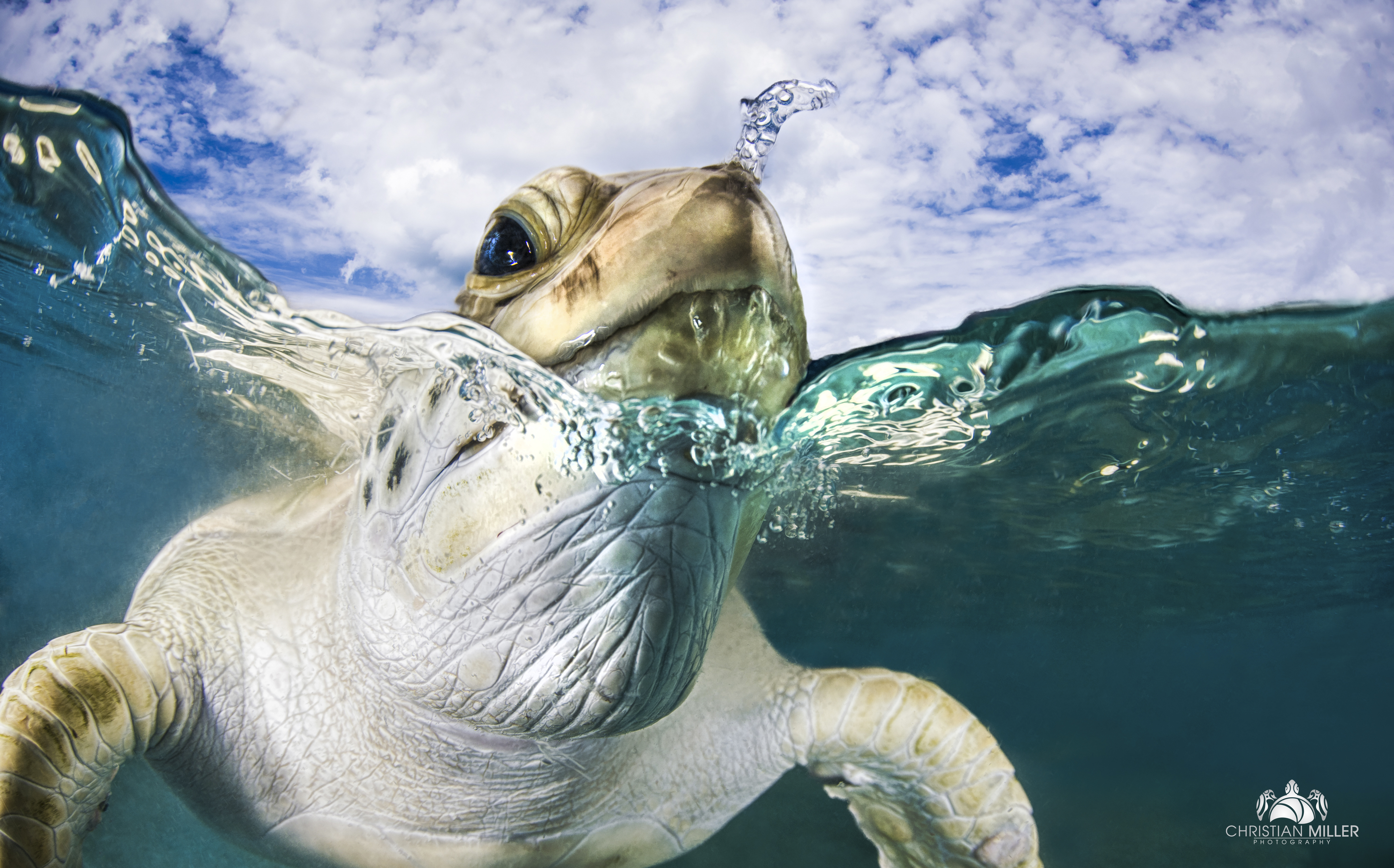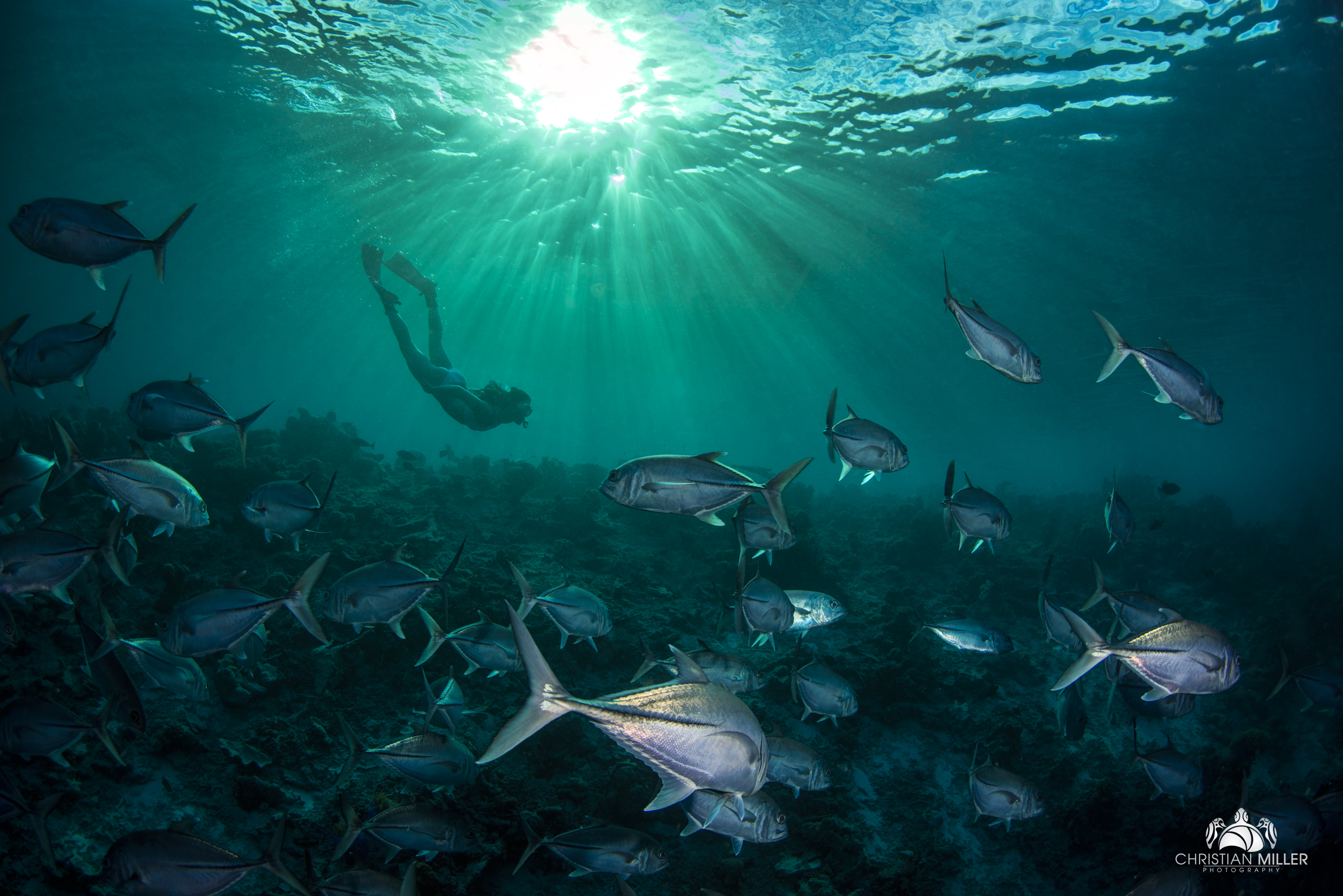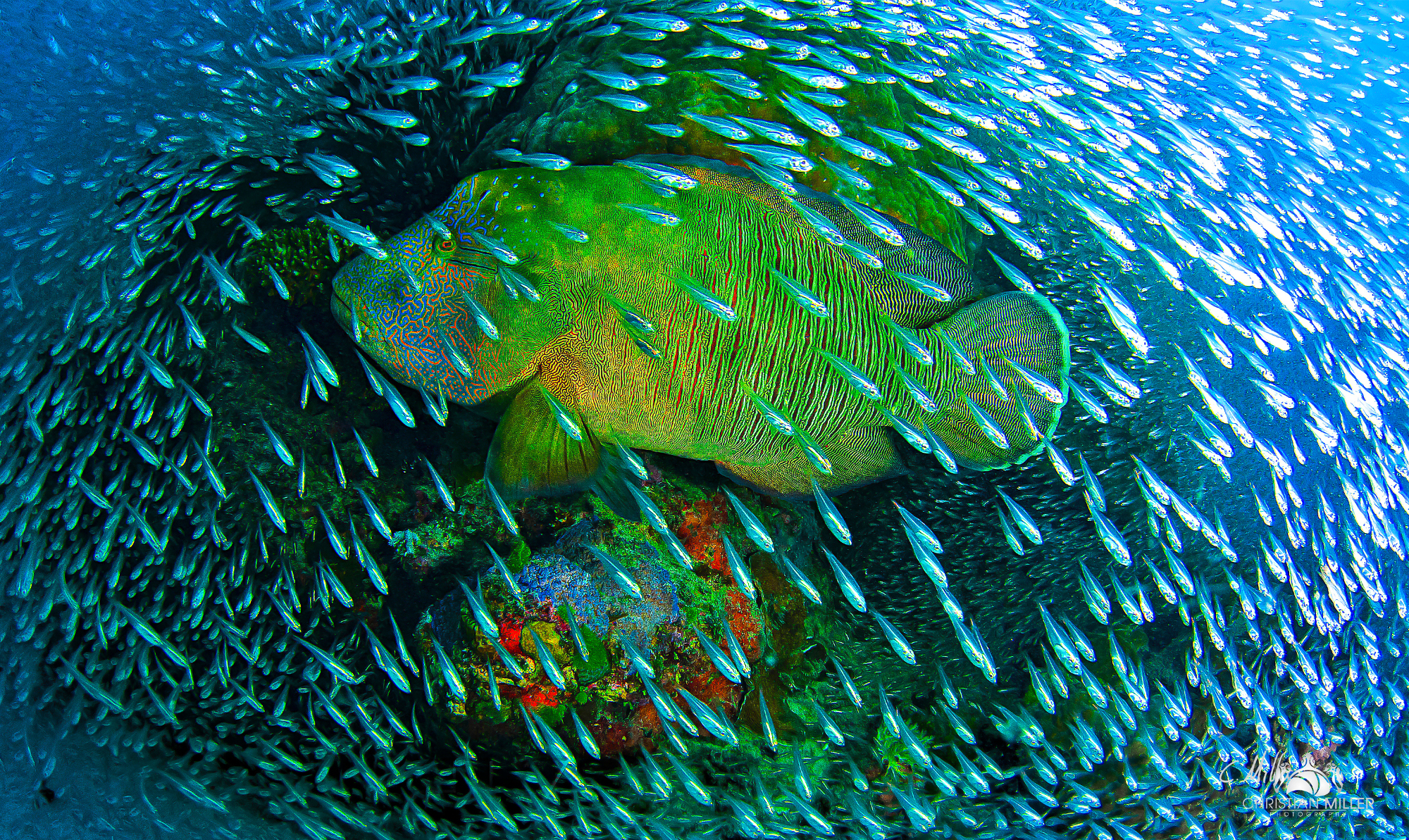In an ongoing series, we’ll chat with prominent and up-and-coming underwater photographers. Today we sit down with Christian Miller.
Tell us a little about yourself.
I became a professional diver in 2002 and have lived and worked in the Caribbean, Central America, Asia, and Australia. My desire to help the marine environment grew along with my camera skills, and I began planning conservation projects. In 2009, I became the director of a turtle rehabilitation center. From then onward, I used my film, graphic and photo skills to help raise funds for turtles through the Cairns Underwater Film Festival, where I am one of the organizers and photo judges.
I also worked with several film production companies, such as National Geographic and the BBC, as well as working on the IMAX movie about the Great Barrier Reef. In 2014, I won the Pride of Australia Medal for environmental achievement, and joined the Ocean Alliance team to study and protect whales. I’ve since begun working with several other organizations, all with the aim of tackling the ever-growing list of problems facing the oceans.
How long have you been an underwater photographer?
I started underwater photography pretty much as soon as I became a professional dive instructor in 2002.
How did you become interested in underwater photography?
In my blood, I am an artist. I used to draw mostly exotic animals, and the underwater world always fascinated me. Photographing marine life allowed me to create my own visual reference from which to draw. Originally, I was not interested in a career as photographer or filmmaker. This desire came later with the urge to help marine life and to be actively involved in conservation work.
What’s your favorite style of underwater photography?
My style of photography has always been based on storytelling, or on showcasing a behavior. I’ve always focused on the megafauna — mostly humans interacting with marine life or environmental issues.
Any favorite subjects?
Sea turtles, sharks, whales, napoleon wrasse, porpoises, school of fish, and anything I have never seen before. On my bucket list are orcas, sperm whales, mola mola, penguins, beluga whales, leatherback turtles and dugong.
Any favorite destinations?
Anywhere I have never been before. The Great Barrier Reef is my backyard. I love to go out with researchers to remote places. I love to take part in exploration and environmental expeditions. But you can throw me into a lake with no vis and I’ll still be happy to breathe underwater.
What’s your underwater setup?
For film, I use an EPIC 6K Red Dragon, a Nauticam housing and fisheye lights. For photos, I use a Nikon D800, Aquatica housing and Ikelite DS161 strobes.
Do you have any tips for new underwater photographers?
Well, one of the obvious tips — don’t start working on photography until you are 100 percent comfortable with your dive skills. Only then should you focus on your camera. Get to know your camera on land first. Understand the manual settings and how change them according to your light conditions and your subject.
Conditions underwater tend to remain fairly constant during a dive, unless you are changing depth. I mostly shoot at the fastest sync speed of my strobes, and a “save” aperture of around f9 to f12, adjusting the strobes according to the subject and its distance from me. If that doesn’t give me the result I want, I must know which variable to change to get the look I’m going for.
Always focus exactly where you need to focus, and double-check after a few shots. Always be aware of your surroundings, of coral, sharp objects, and marine life. Let the animals decide if they want to be your model, but position yourself to increase your chances. Always respect the animal — if it’s not your day to get a shot, don’t worry. The day will come and your patience will pay off. I have missed thousands of shots, but I’ve gotten plenty of great ones as well.
By guest author Christian Miller
Christian Miller is one of the directors of the Cairns Turtle Rehabilitation Center; an ambassador, photographer and filmmaker for Parley for the Oceans; a filmmaker and photographer for Ocean Alliance; and a filmmaker for Biopixel Ocean Foundation. See more of his work on his website as well.


